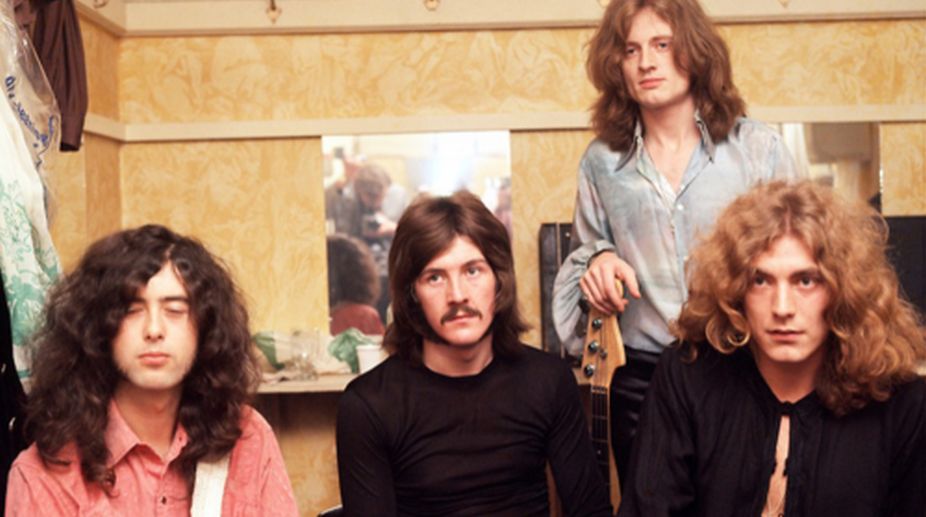It was born in an era of protests. As young people took to the streets across Europe and the United States in the 1960s, challenging the norms set for generations, a little-known genre of music was getting ready to make waves, emphatically.
The sound of music that the likes of Led Zeppelin, Black Sabbath and Deep Purple made popular in 1968 was to stay for generations. Heavy Metal attracted music lovers by its strong, massive sound, underlined amplified distortions and led by extended guitar solos. The emphasis was on strong beats and high decibels.
Advertisement
But this Rock variant may be on its death bed. The days of classic, old-school Metal bands is probably going to get marked by a most anti-climactic ending of all. Listeners are abandoning the genre at an alarming rate.
"People listen to music differently now. They don't have time to sit down and put the record on and give it 30 minutes… Who will be the next giant Metal band, I don't know," Rob Halford (Judas Priest), one of the godfathers of Metal, was once quoted as saying.
Concert sales have fallen. The Ozzfest in the US is losing its charm, and the enthusiasm for Germany's Wacken Open Air has declined sharply.
Radio, television and the internet are dominated by generic pop artists. Dee Snider of Twisted Sister says that "MTV helped and hurt Metal. They created this whole new visual scenario for bands, but at the same time looks began to matter more than the music".
Even Ronnie James Dio (Black Sabbath & Dio) said in an interview before his death in 2010: MTV "killed" Heavy Metal.
"Their emphasis on creating music videos led to the rise of hair bands like Poison. It mattered far more what you look like with all that make-up, and how many 14-year-old girls you could pick up, and how much you could party than anything else. I'm sorry but that is just not Metal," he said.
So did glam kill Metal?
What makes pop music so attractive is that you don't have to be musically inclined to create music anymore and that basically anyone with a computer can do it. The so-called "Metal" today is not pretty different with many bands going over to the electronic side whilst abandoning their fat, beefy guitar tunes and overall aggressiveness.
Megadeth frontman Dave Mustaine said people these days "can't even play the f***ing guitar" and that it is just about "posing". He told Loudwire that "Heavy Metal music is really popular when the world is under a lot of stress".
To make matters worse, many prominent figures of the Metal world such as Chuck Schuldiner (Death), Dimebag Darrel (Pantera) Jeff Hanneman (Slayer), Lemmy Kilmister and Phil Taylor (Motorhead) are gone now and have not really been replaced by a newer generation to carry the torch.
Bands such as Black Sabbath are no longer playing. Many are likely to follow suit. Brent Hinds, guitarist for old school-style Headbangers Mastodon, told Guitar Player last year that he hates playing Heavy Metal, while KISS bassist Gene Simmons proclaimed that "Rock is dead".
In India, one of the first metal bands, Millennium, was formed in 1988. Two bands which could be looked as the voice of Metal are the Bangalore-based thrash Metal band Kryptos and the Mumbai-based extreme Metal band Demonic Resurrection. Others like Nicotine, Inner Sanctum, Scribe, Pin Drop Violence and Bhayanak Maut carry on the Metal torch. But the Metal scene is still evolving.
Metal and Rock music was marked by improvisation on the musician's part in the past, instead of adhering to some kind of established structure. But now there is no inclination to take risks with the fear of upsetting the established pattern, whether in studio or live.
A lot of Metal bands have begun to follow the pop style of verse-chorus-verse pattern whilst abandoning another very important aspect of what defined Metal — self expression. Take the example of two of the best Heavy Metal guitarists such as Randy Rhoads and Marty Friedman: They displayed a lot of skills in their songs such as "Mr. Crowley" and "Tornado of Souls", respectively, bringing in a level of "feeling" that gave their songs a great deal of depth.
But this act of adding "feelings" to your songs, in Metal and Rock alike, seems now almost like a lost art.
The truth is that when you play simple melodies, and strum a few powerful chords with a degree of experimentation, you can, perhaps, do a lot better than using a thousand exotic scales.
Pristinely polishing your music with constant rehearsals instead of placing value only on what sells, priming it for insertion into the media like a piece of meat is what's contaminating the music industry.
And killing Metal and Rock.











